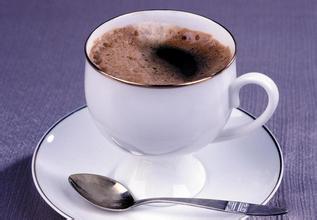Introduction to the blending method of espresso there are several steps in the practice of espresso
[two personal views on making formula beans]
First, it is the goal of the baker to sell coffee beans with the same taste all the year round. after all, some customers want to drink the flavor they like all year round, but unfortunately, coffee is a crop, and the harvest varies from season to season, so, how to adjust the type and proportion of the formula is a way to make fresh and stable coffee.
Second, a more important reason for making formula beans is that it can create a flavor that cannot be achieved by a single coffee bean. So making recipes is like an art, not just a tool. Interestingly, you can find that the interaction of different characteristics of coffee will form a whole new flavor, not just 1: 1: 1: 2.
When different coffee is combined, the characteristics of each coffee can still be found in some recipes, and even the cup tester can tell which beans are in it, but some combinations will suppress the characteristics of other beans when one side is stronger.
Another advantage of making formula beans is that a good formula can have a long sales cycle, meaning it can satisfy the tastes of most people, and even after a decade, the formula is still popular. In addition, good formula beans should taste good whether they are used for espresso or cooked in a follicular style.
[for five steps to complete a formula bean]
First, plan a process for making a recipe, and you need to think about some basic questions, such as: what kind of customer is your recipe for? Is it a home consumer, a cafe, or a multi-purpose recipe? These questions determine what flavor the recipe should have and how deep it should be baked, and the baker must know what kind of flavor he wants to bake. All these have to be decided beforehand.
Second, all kinds of coffee beans used in the formula must have their own characteristics and can perform well when they are made into individual coffee. Some coffee roasters will use poor beans in the formula and try to cover up its bad taste with baking. Personally, I think this is a thing that gets twice the result with twice the effort, and the guests will not be satisfied.
Third, determine the baking degree of each kind of beans, let the coffee beans show their own characteristics, and combine them into your recipe with their different characteristics. It is recommended to roast before mixing beans, you must try the various roasting degrees of each kind of coffee, this process is very critical, be sure to try more! It is often seen that many roasters ignore this step and decide the baking degree of each cup of coffee too early. Please remember that the best roasting degree of each coffee bean is different, and each kind of coffee tends to have more than one optimal roasting degree. In this way, countless kinds of coffee and so much roasting will turn the work of preparing the recipe into an endless nightmare.
Generally speaking, three baking degrees, mediumlight, medium, and well-done, are recommended. Many coffee roasters copy some well-known recipes, but do not hesitate to bake deep enough to lose their original flavor in order to get the so-called complete caramelization. The result is a lot of black and scorched products. Through shallow roasting, you can get the original flavor, complexity, freshness and sweetness of the coffee. Encourage to try to show your recipe with a lighter baking. Here, if the use of shallow roasting must pay attention to the roaster's baking skills, automatic roaster can not bake a good shallow roasted coffee!
Fourth, you must choose the kinds of raw coffee beans you want and their respective roasting degrees. Remember, you must keep a detailed record of the raw beans, baking techniques, and recipe proportions you use. If you come up with a good recipe, you can refer to the information on the record and continue to improve it.
There are some differences in the coffee beans harvested from season to season, and it is recommended that you re-evaluate your recipe every season. The key to the process of preparing the formula is to make sure that each bean in the formula has been baked to the perfect degree. To make the perfect recipe depends on your tasting ability. Even if you think you have made the best recipe, the final judgment is in the hands of the customer.

Important Notice :
前街咖啡 FrontStreet Coffee has moved to new addredd:
FrontStreet Coffee Address: 315,Donghua East Road,GuangZhou
Tel:020 38364473
- Prev

Coffee Blending Coffee Blending
Before blending, we should be clear about the following points: 1. The theme of the product is to mix what kind of taste, that is, to determine the goal of blending. 2. To blend coffee, you must first understand the characteristics of each individual coffee, understand the subtle relationship between roasting and coffee flavor, and all this can only be achieved through sipping cups. 3. Determine the coffee involved in the blending
- Next

Caffeine content of coffee beans after semi-washing reduces coffee beans washing and sun exposure
What is the effect of roasting degree on caffeine content? some people might say that when mixed beans are usually roasted deeply, caffeine will be reduced.
Related
- Guji coffee producing area of Guji, Ethiopia: Humbela, Shakiso, Wulaga
- What is the most expensive variety of Qiloso in BOP multi-variety group?
- How to store the coffee beans bought home?
- Why are Yemeni coffee beans so rare now?
- Ethiopian Sidamo all Red Fruit Sun Sun Santa Vini Coffee beans
- SOE is mostly sour? What does it mean? Is it a single bean? what's the difference between it and Italian blending?
- Is Italian coffee beans suitable for making hand-brewed coffee?
- How to choose coffee beans when making cold coffee? What kind of coffee beans are suitable for making cold coffee?
- Just entered the pit to make coffee, what kind of coffee beans should be chosen?
- Can only Japan buy real Blue Mountain Coffee? What are authentic Jamaican Blue Mountain coffee beans?

